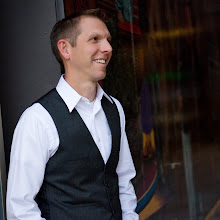“No one after lighting a lamp puts it in a cellar or under a basket, but on a stand, so that those who enter may see the light. Your eye is the lamp of your body. When your eye is healthy, your whole body is full of light, but when it is bad, your body is full of darkness. Therefore be careful lest the light in you be darkness. If then your whole body is full of light, having no part dark, it will be wholly bright, as when a lamp with its rays gives you light.” (Luke 11.33–36)According to Jesus, seeing defines our spiritual health and, so, we must be careful how we see. But Jesus isn’t talking about our physical or even our “moral” vision (how we see right and wrong). He is talking about something even more fundamental.
The Lamp: Who’s Lighting It and Why?
To understand what Jesus is referring to, we have to reach back into Luke 11 and Luke 8 for more context. In Luke 8:16 Jesus makes a similar “lamp” statement:
“No one after lighting a lamp covers it with a jar or puts it under a bed, but puts it on a stand so that those who enter may see the light.”This comes at the conclusion of His explanation for speaking in parables (Luke 8:9-10). The parables act as a filter. They allow “the secrets of the Kingdom” to be revealed to Christ’s humble followers and hidden from the proud and arrogant. So, after making the logical statement that lamps are for lighting a room (Luke 8:16), Jesus states that “nothing is hidden that will not be made manifest, nor is anything secret that will not be known or come to light.” A light is being intentionally lit with the same purpose as the parables. This light will reveal hidden and secret things (“the secrets of the Kingdom”). There is purposeful, revelatory action happening in the midst of Jesus’ listeners and, yet, He cautions them to “Take care, then, how you hear for to the one who has, more will be given” (Luke 8:18). The benefits of the revelation are available only to careful hearers.
But isn’t this all just a little too cryptic? What is being revealed? What could hinder someone from receiving this revelation? What or who is the lamp being lit? For these questions Luke 11 is a great help.
In Luke 11, we see three different exchanges with Jesus worth noting. (1) Some in the crowds claim that it is by Beelzebub’s power that Jesus drives out demons. (2) A woman claims that Jesus’ mother is blessed to have Jesus as a son. And, (3) we can infer, some in the crowd demand Jesus to show a sign that he is really the Christ. Each of them sees Jesus wrongly in some typical way. Jesus responds to all of them with this lamp discourse because He is the lamp that they are not seeing. He is the mystery of the ages revealed; the culmination of the secret plan of God. Jesus is the resolution of God’s steadfast love AND his absolute justice. He is the fulfillment of the prophecies. He is the Messiah. He is in plain sight and they have missed Him.
And, when our eyes are not healthy (or “singular” as the word could also be translated), we can miss Him as well; not because he is invisible but because we see what we want to see. We take Him on our terms, not His; not as He truly is. That was the error of each of the people in Luke 11:14-32.
If we take Jesus on His terms, our good (singular) eyes will see Him in truth and this sight will bring light and health to our “whole body.” When we form Jesus into our image, our skewed sight of Him is actually detrimental to our body; indeed it fills us with darkness. Our lives are characterized by our understanding of His identity.
“Life as a Solar-Powered Flashlight” is an attempt to unpack the different ways we take Jesus on our terms and how these terms distort Christ and leave us dark in the midst of Light. Listen to it here.
Additional Resources
Discussion Questions
Slides from the message (a table comparing right and wrong ways to see Jesus)










0 comments:
Post a Comment